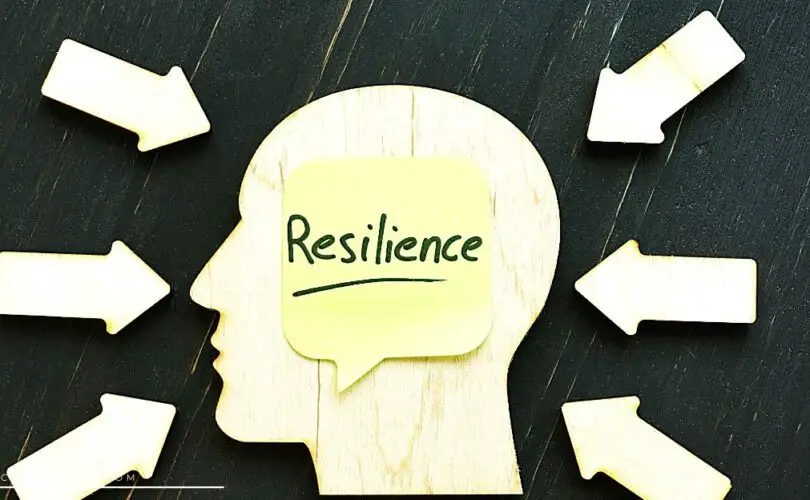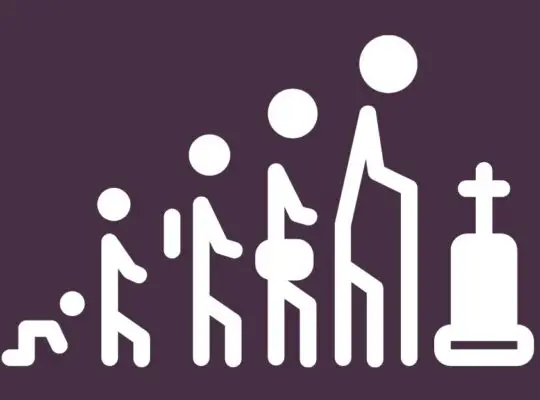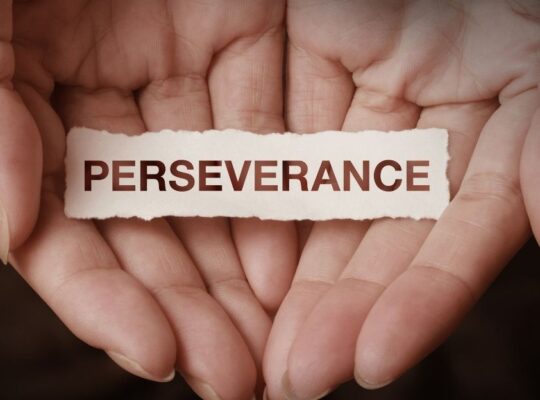Power words describe and persuade some sort of emotional response that triggers an action. They relate to your focus and can allow you to transform your mindset through repetition when used in both speaking and thinking. Before discussing powerful words that allow you to manifest resilience in order to overcome challenges and deal with obstacles along your journey, it is important to discuss what resilience is, the role it plays in your life, and how it can impact you.
According to an article published by Very Well Mind(*), resilience is the psychological strength an individual has, to cope with challenges and hardships in life. It is a mental strength that is built up and used in times of need in order to handle adversity and rebuild one’s life. When setbacks arise, resilient people tend to recover much faster and are not as overwhelmed because of their coping strategies.
Resilience does not prevent hardship, but it allows you to understand that pain is inevitable and allow yourself to learn and grow stronger from it. Resilience is an extremely important skill to have throughout your daily life because it allows you to take more risks that push you towards success and achieving your dreams and aspirations.
It improves your confidence and allows you to learn from experiences that may not be pleasurable. Below are 27 powerful words that you can use to learn to embrace hardships and build up resilience every day.
Life Hack: It’s time to RISE ABOVE life’s challenges and radiate resilience, strength & happiness. In just few minutes a day. Read more…
27 Power Words For Building Resilience
1. Grateful
Being grateful each and every day impacts all aspects of your life and is not only limited to times when adversity arises. Gratitude improves your overall mental health and significantly impacts your wellbeing. When you are grateful, you are able to be a more optimistic person and face adversity in a positive light.
When challenges arise, you will no longer feel like a victim and feel like everything happens to you. Instead, you will be more motivated to look for solutions and ways to overcome. During times of great conflict, you will look for opportunities to say thankful for what you do have, rather than feeling like a victim of your own life.
When you are grateful, you look at negative situations as opportunities to learn and grow which inevitably improves your resilience. The mental strength that gratitude provides will keep you learning and moving forward, and setbacks will only make you stronger.
There are many techniques such as meditation and gratitude journals that will teach you how to experience gratitude and keep you accountable from a mental perspective. Once you incorporate these strategies into your daily routine, you will find yourself being grateful and using this power word throughout the day and especially during challenging times.
Feel Happier: Unlock the door to a joyful and flourishing life, and disrupt habits of overthinking and rumination – in just minutes a day. Read more…
2. Courageous
Being a courages person means not letting danger or pain get in the way of overcoming adversity, facing uncertainty, and stepping out of your comfort zone. It means understanding that fear is inevitable and that bad things may happen in life, but not letting them impact your mental strength and willingness to do whatever it takes to reach your goals.
Courage is crucial to building up resilience that will help you in trying times and will give you the confidence you need to trust your own ability.
Courage and bravery are extremely powerful words when facing challenges. Adversity can fill us with fear, sadness, and make us want to hide in our shell and be risk-averse. However, not letting fear get in the way is a crucial part of being resilient and taking the risks you need to discover new opportunities and advance in life. When you have courage, you understand that the outcomes of new situations and obstacles are uncertain, but not letting the fear of uncertainty stop you from taking necessary risks.
Unstoppable Confidence: Learn how to open the door to unstoppable confidence and higher self esteem. Read more…
3. Limitless
When you are limitless, you do not let boundaries such as fear, danger, and risk get in the way. You do not allow your comfort zone and fears prevent you from accomplishing goals and look at fear as a way to learn and build up your mental strength and resilience. Being limited by your fears will only prevent you from feeling satisfied and achieving the things you have always aspired for.
The mind can play tricks on us and make us constantly predict the worst possible scenarios and outcomes of a situation. This leads to negative self-talk that makes us feel incapable and not worthy of our goals. It also leads to a victim mindset and keeps us wondering why adversity always happens to us.
This keeps us limited to the things we know but embracing uncertainty and being limitless is what makes us resilient. The resilience you build up will provide you the strength to deal with challenges when they arise and look at obstacles in a positive light, rather than letting them hold you back.
Limit-Free Life: Unlock your full potential and reprogram your mind for a limit-free life. Read more…
4. Grit
To have grit means that you are courageous, passionate, and perseverant. These qualities are crucial when being a resilient leader and someone that others can trust in stressful and challenging times. When we discuss qualities of a confident and effective leader, we often talk about the grit that comes in handy during times of need.
Grit is crucial to dealing with adversity in a confident and intelligent way that drives achievement and success. Having a grit mindset keeps you on track and does not let obstacles prevent you from getting in the way.
Having a firm character gives you a strong and resilient mindset that keeps you performing to your highest potential and makes you the strongest version of yourself. This allows you to let go of mental blocks that set you back and negative self-talk.
Grit also means having passion and intense perseverance to keep going or to reach goals. Grit provides you with the persistence you need to overcome any obstacles and remain resilient in intense times of hardship. Grit provides you with the type of passion and perseverance you need to remain committed, have direction and overcome setbacks and failures.
Related Resource: 4 Carefully crafted meditation tracks for those who are feeling stuck in life. Read more…
5. Open-minded
An open-minded person is full of wisdom and mentally strong to deal with conflict in a productive and efficient way. Open-minded people constantly look for solutions and will get there much more quickly than someone who is set in their ways. Being open-minded during troubling times keeps you approachable and look for different ways to learn from conflict and adversity.
In order to work on being more open-minded in order to build up mental strength and resilience, it is important to look for feedback from others. This allows you to grow even more and reflect on the way you handle situations and look for ways to improve in the future. This is a form of personal development that will keep you in a constant state of growth and resilience that will build up your tolerance and problem-solving skills for future conflict.
Guided Self-Hypnosis: Discover the most effective way to overcome all mental obstacles and enjoy a more successful and productive life. Read more…
6. Being Fearless
Fearlessness and resilience go hand-in-hand when building up the mental strength needed to handle and approach difficult situations confidently and efficiently. Being fearless does not mean that fear is non-existent, but it means not letting it get in the way or prevent you from taking necessary actions in different situations. A fearless person understands that fear is present but uses it to fuel their growth and resilience.
You can let fear keep you in a constant state of worrying about potential outcomes of difficult situations, or you can let it force you to take risk. Fear usually means personal growth and mental strength development, so it is important to know that fear is a good thing.
Being fearless means having the courage to understand that the outcome is uncertain, and that failure can occur, but taking the risks anyways because of your resilience. Fearless people have confidence in themselves to handle obstacles and find ways to overcome them while staying mentally strong along the way.
7. Fortitude
Fortitude is defined as the strength of the mind to find courage to deal with pain, adversity, and life’s greatest conflicts. Enduring challenging situations with fortitude is one of the most important ways to handle adversity and be resilient. Finding courage within keeps you mentally strong no matter what and allows you to let go of negative self-talk. Fortitude is especially important when dealing with adversity over a long period of time because it keeps you going during times when you feel like giving up.
People who have a great sense of fortitude are perseverant and are admirable for staying calm during challenging and uncertain circumstances. It is a necessary element of success and keeps you in a solution-oriented state of mind and willing to take on fear bearing tasks that require lots of resilience.
8. Self-reliant
Being self-reliant means that you are not dependent on others for happiness, solutions, and other daily elements of life. Self-reliance gives you the confidence to face challenges on your own without fear of judgement from others. It is an important quality of a resilient leader because you will often have to make important decisions during times of conflict by yourself that will impact the lives of many people.
Self-reliance builds up your self-esteem and confidence and releases your dependence on others. In order to build up a sense of self-reliance, it is important to practice solving problems on your own and spending time with yourself in order to learn more about the way you handle conflict. By reflecting on your own mistakes and the things that may scare you, you will be able to build up a sense of resilience that will greatly improve the way you face obstacles.
9. Insightful
An insightful person has the necessary traits to provide wisdom and intelligence during times of uncertainty. When you think outside of the box and provide creative solutions to obstacles, you will inevitably become more resilient because you trust your own ideas and believe in yourself to make the right decisions.
Being insightful means being solution-oriented and constantly looking for the answers, rather than doubting your sense of self-worth and capabilities. Being insightful means you are resilient enough to not worry about judgement from others and are willing to speak up to ask important and difficult questions.
You can analyze these problems as they are occurring, constantly search for ways to grow stronger both mentally and physically and can reflect on the way you handled things after the fact. This sense of analytical thinking builds resilience for future conflicts and adversity.
10. Independent
Being an independent person gives you the confidence and strength you need to take on challenges and difficulty with a resilient mindset. When you do not depend on others for mental satisfaction and trust in your own capabilities, you will discover that you possess the traits necessary for solving problems and getting closer to success.
When you constantly think that a problem will get solved on its own or that other people are more capable than you, you will not possess the state of independence you need to be resilient in times of trouble. Eventually, you will have to face your fears and difficult thoughts on your own, so it is important to partake in necessary techniques to build up confidence in yourself and resilience. This may also require reflecting on the people your surround yourself with and those who may be sources of trouble in your life and letting go of your dependence on them.
11. Hopeful
Without hope we would give up. Hope lights the way and hope keeps you going when times are toughest. Without hope resilience cannot exist.
12. Initiative
Taking the initiative to deal with and handle tough situations when outcomes are uncertain requires a lot of resilience and mental strength. It requires confidence and trusting yourself to make the right decision, especially when things are difficult and unpredictable. Taking initiative builds trust within as well as from others around you as it is a necessary part of being a good leader.
It is very easy to be passive, not step out of your comfort zone, and not speak up for fear of judgement when you have a great idea. However, this will never lead you to a place of satisfaction and you will not feel mentally strong. Taking a chance when risk is involved allows others to look up to you as a role model and build up your own resilience and confidence for future situations.
13. Creative
Being a creative person and willing to look at things from different perspectives is crucial when handling adversity and providing insight during challenging times. Using your imagination, especially when under stress and pressure, keeps you very valuable and resilient. It is important to understand that challenges require thinking outside of the box in order to overcome and that resilience requires creativity.
Finding new solutions allows you to be independent and embrace new ideas that can help you get through your struggles. This requires an open-mind and flexibility that is crucial to becoming resilient.
14. Moral
Having a sound moral compass is an important part of your character that means you are honest, loyal, courageous, and have integrity. Being a moral person means that you try to do what is best and have a good impact on society. When you have good values, you will not live in a sense of regret and will likely be a powerful decision maker. Being a moral person gives you the confidence that you are doing the right thing, which will inevitably make you more resilient.
15. Faithful
Having faith that things will turn out okay, no matter the challenge or struggle, will allow you to handle situations with a positive mindset and an optimistic perspective. This will allow you too not live in a place of self-doubt, and you will be confident in your ability to overcome conflict knowing that things will get better.
16. Acceptance
Being accepting of conflict and struggles rather than trying to prevent them will make you better at handling solutions and taking control of the challenge. This is crucial when managing self-doubt and becoming resilient to challenge, because you will be able to focus your energy on overcoming and ways to improve.
17. Self-Care
Taking care of yourself and making time for things like exercise and meditation is crucial for having the resilience you need when struggles occur. This is because when you care for and build up your physical, mental, and emotional health, you will be more stable and in control of the mind. This in turn will make you more solution-oriented and will allow you to be more prepared to step in and take control of your life, rather than hiding away from conflict in your comfort zone.
18. Problem Solver
Being solution-oriented is crucial to overcoming setbacks and being a resilient person. When you are willing to solve problems rather than constantly trying to fight them and prevent them, you will learn that they are opportunities to mentally grow and develop.
Being a problem-solver allows you to make important decisions that will lead you towards your goals and will allow you to take control of your own life. When you look at problems as challenges to solve rather than places to give up, you will have a more positive perspective on your life making you more resilient and stronger.
19. Survivor
When you have gone through a difficult situation in the past, this often causes trauma, fear, and self-doubt. It makes you feel like a victim who has bad luck or is not capable of overcoming challenging circumstances. This victim mindset can force you into a state of hiding and distract you from the risks and challenges needed to feel successful in life.
Rather than feeling like a victim after a traumatic or difficult event, it is important to view yourself as a survivor. Looking at your situation from a different perspective allows you to analyze and reflect on your situation and realize how much stronger it made you. By analyzing the ways that this event allowed you to build up your tolerance and grow through learning, you will be resilient and willing to take on more risk in the future.
20. Personal Responsibility
Taking responsibilities for your actions, decisions, and mistakes you may have made is crucial to building resilience. This is because when you realize that you have made a mistake, you can reflect on it through analytical thinking and find places where you could have done things differently and what you can learn for your future. This allows you to further develop the mind and be stronger for future situations.
Taking personal responsibility is a very difficult action but has the potential to make you grow significantly and be mentally resilient to overcome future scenarios and take initiative. Without blaming others for your problems and circumstances, you will believe in the power you have to mold your future and take control of your life. It will also allow you to find better coping mechanisms rather than putting the blame on others and resenting them for your hardships.
21. Purpose
Find purpose in your goals gives you a sense of perseverance, dedication, and motivation. It allows you to become passionate which makes you stronger in the face of obstacles and makes you less likely to give up on your dream. When you have purpose and passion behind your goals, you will make smarter decisions, be more productive, and will not let anything hold you back.
Having a purpose and sense of motivation for what you are doing keeps you resilient to overcoming setbacks along the way. You will be mentally stronger and more solution-oriented because your goals mean so much to you, rather than leaning on the past and being hesitant to taking risks.
22. Optimistic
Facing situations with a positive state of mind is crucial when being resilient during times of conflict and uncertainty. When you fill your mind with negative self-talk, doubt, and fear, you will never feel capable or trust yourself to make the necessary decisions. Being optimistic means looking at a difficult time with a sense of gratitude and positivity for it is making you stronger and allowing you to grow as a person.
Optimism is surprisingly one of the keys to resilience and self-confidence. It allows you to realize that many of the negative outcomes are just worst possible scenarios made up in the mind that make you feel incapable. When you are optimistic for the future, you will realize that trying times only make you learn and build up your wisdom, making you more willing to step in and take initiative for your future despite possible conflict.
23. Confident
People who are confident in themselves and believe that they will make the right decisions are more willing to take risks and handle obstacles that get in the way. Resilience is the ability to bounce back from these challenges and overcome situations, so it is no wonder that confidence goes hand-in-hand with it.
When you are confident, you are solution-oriented and trust your ability to make tough decisions. You trust that you will be able to handle whatever life throws at you and that it will only make you more resilient and stronger for the future. Trusting in your own capabilities allows you to be independent and take matters into your own hands which inevitably allows you to take control of your life.
24. Flexible
Being flexible when adversity arises is a key aspect of resilience. The “my way or the highway” state of mind will prevent you from reaching your goals and make keep you fighting way more challenges than necessary. When you are flexible, you look to others with an open mind for ideas and potential solutions that may solve the problem much faster than you can on your own.
When obstacles arise, you will likely need to go a different way than you planned and may have to take detours on your path to achieving your goals. Being flexible allows you to accept that change is inevitable and look to new solutions, rather than giving up when something goes wrong. Refusing to give up and doing whatever it takes requires an open-mindset and is the most important way to build up resilience.
25. Able
The ability to realize your power, skills, and self-worth builds up your resilience during times of trouble. When you know that you are capable of handling conflict, you are confident and believe in yourself. Confidence is directly related to resilience because when you understand that obstacles are inevitable but trust in yourself, you will step out of your comfort zone and take many important risks.
Realizing your capabilities provides you with mental strength and allows you to let go of the anxieties that come with overanalyzing situations and holding back because of what could go wrong. It means that you trust your decision-making and problem-solving skills to take you where you need to be.
26. Believe in Myself
Believing in your capabilities and having a sense of self-worth will keep you in the driver’s seat of your life. You will be independent and will not wait for others to get it done. This will lead to mental productivity and confidence that allows you to take initiative and make important decisions when conflict arises.
When you believe in yourself, you will take risks and step out of your comfort zone with the faith that you can accomplish anything. This will allow you to look at setbacks in a positive light and grow from anything that life may throw at you. This allows you to build up a resilience towards conflict that is necessary when moving forward in life and setting goals for yourself.
27. Inner-strength
Building up inner strength takes a lot of effort and time but will allow you to become the best version of yourself. Resilience is an essential quality of inner strength and vice versa because it allows for personal growth through setbacks and the confidence to overcome any challenge. Inner-strength fuels risk taking, problem solving skills and fortitude to hand anything that comes your way. It means not being dependent on or comparing yourself to others but being confident in your own potential.
Inner strength means understanding that fear and self-doubt are inevitable but building up ways to let them fuel you in taking risks. It means not being dependent on or comparing yourself to others but being confident in your own potential. Reflecting on your past experiences and ways you can learn from them will help you to form the resilience within to accomplish your greatest goals and aspirations.







